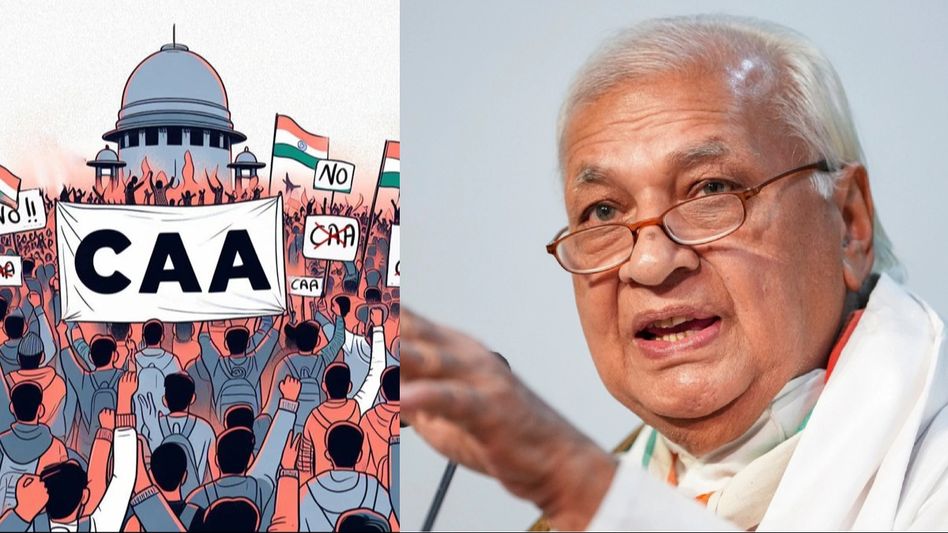CAA was an assurance made by Mahatma Gandhi and other first-generation leaders, claims Kerela Governor
Kerala Governor Arif Mohammed Khan reignites the controversy surrounding the Citizenship Amendment Act (CAA), stating it should have been implemented earlier. His comments come amidst ongoing debates on the CAA's potential violation of India's secular principles.

- Kerala Governor reignites the Citizenship Amendment Act debate.
- He states CAA should have been implemented earlier, echoing the views of India's founding leaders.
- His comments come amidst ongoing debates on the CAA's potential violation of India's secular principles.
Kerala Governor Arif Mohammed Khan has reignited discussions surrounding the Citizenship Amendment Act (CAA), emphasizing that its implementation should have occurred much earlier. In a recent statement, Governor Khan referenced historical assurances made by India's founding leaders, including Mahatma Gandhi, Pandit Jawaharlal Nehru, and Sardar Patel, regarding protecting and including certain communities affected by partition.
"This (CAA) should have been implemented many years earlier as this was an assurance that was made by Mahatma Gandhi, Pandit Jawaharlal Nehru, Sardar Patel... to those who were left behind in Pakistan, who never demanded Pakistan but fell victim to the partition," stated Governor Khan, highlighting the promises made by India's "first-generation leaders."
The Governor's remarks come amidst ongoing debates and discussions surrounding the CAA, which has sparked controversy and protests nationwide. Critics argue that the act is discriminatory and violates India's secular principles by favoring certain religious groups over others. On the other hand, proponents argue that it is a humanitarian measure aimed at protecting persecuted minorities.
The CAA has been a topic of contention and debate since its introduction, with supporters arguing for its humanitarian and historical justifications, while critics raise concerns about its potential impact on secular principles and constitutional values. Governor Khan's perspective adds to the complexity of the conversation, drawing attention to the historical commitments made by India's leadership and their relevance in contemporary citizenship policies.
The Citizenship Amendment Act (CAA), passed in December 2019, aims to grant Indian citizenship to persecuted religious minorities from Pakistan, Bangladesh, and Afghanistan who entered India before December 31, 2014. Specifically, it provides a pathway to citizenship for Hindus, Sikhs, Buddhists, Jains, Parsis, and Christians facing religious persecution in these countries. However, it excludes Muslims, leading to widespread criticism and allegations of religious discrimination.
Copyright©2025 Living Media India Limited. For reprint rights: Syndications Today









